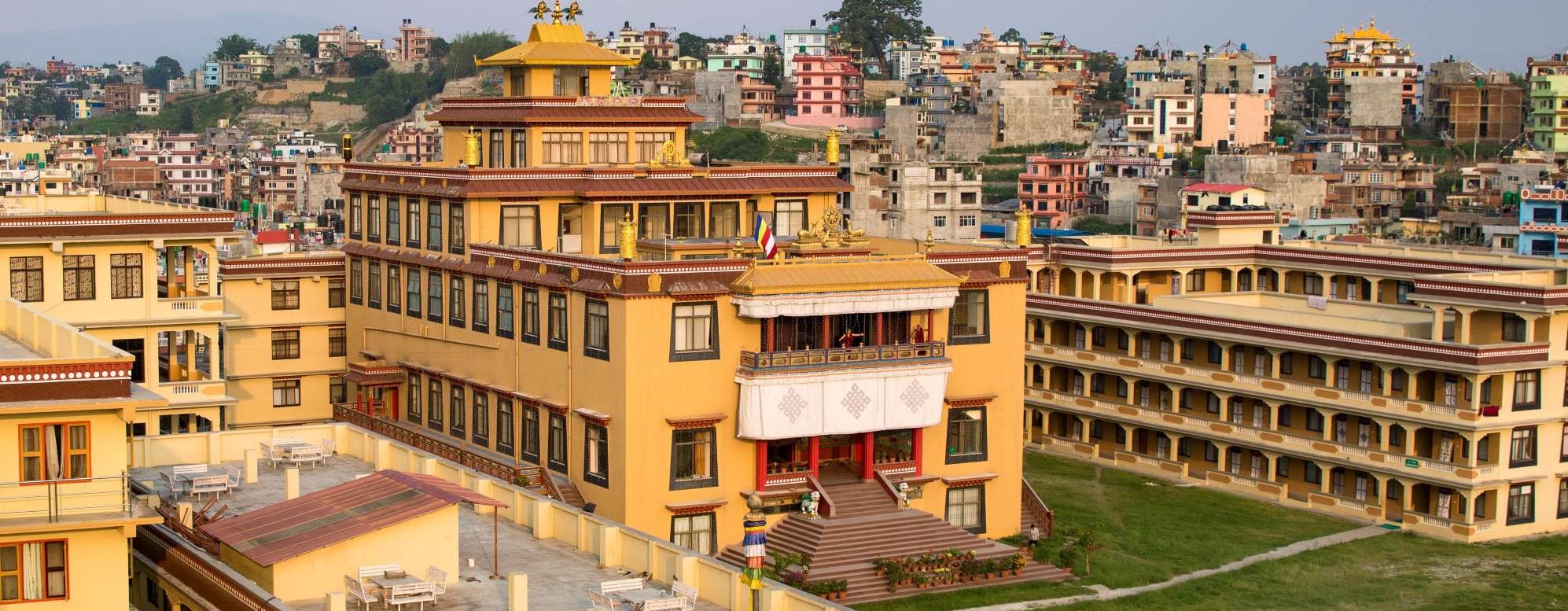
Buddhism flourished in Tibet for more than a thousand years until the Chinese invasion in 1959, which led to the Dalai Lama fleeing into exile to India. With him came thousands of Tibetans determined to continue their religious and cultural traditions. Because of their efforts, the Tibetan Buddhist teachings, transmitted unbroken and unaltered through a lineage of learned teachers to the present day, are still taught in the monasteries and nunneries the Tibetans have re-establish in exile.
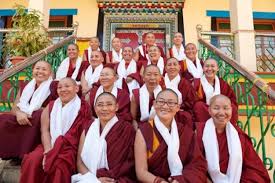 |
Monasteries and nunneries provide the best environment for the study and practice of the Buddha's teaching without distraction. The main emphasis is on developing the mind by studying philosophy, debate, and lam-rim, and the Graded Path to Enlightenment.
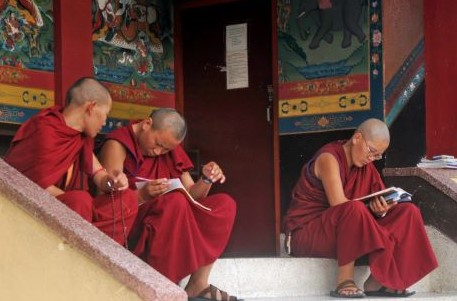 A nunnery is a community of like-minded women of all ages who have come to together study and practice their spiritual belief. Nunneries exist in spiritual traditions all over the world. By becoming a nun, one abandons the ways and appearance of a lay person and adopts the appearance and ways of an ordained person, a commitment made when accepting the vows of ordination. The aim of the nunnery is to create a place of study and practice in a supportive and stable environment for women who want to devote their life to the teachings of the Buddha.
A nunnery is a community of like-minded women of all ages who have come to together study and practice their spiritual belief. Nunneries exist in spiritual traditions all over the world. By becoming a nun, one abandons the ways and appearance of a lay person and adopts the appearance and ways of an ordained person, a commitment made when accepting the vows of ordination. The aim of the nunnery is to create a place of study and practice in a supportive and stable environment for women who want to devote their life to the teachings of the Buddha.
Khachoe Chakyil Ling Nunnery (Kopan Nunnery) is one of those nunneries. Lama Yeshe and Lama Zopa Rinpoche, founders of Kopan Monastery in the Kathmandu Valley, admitted the first nuns to live and study there in 1979. The Nunnery is currently the largest Tibetan nunnery in Nepal with 400 nuns.
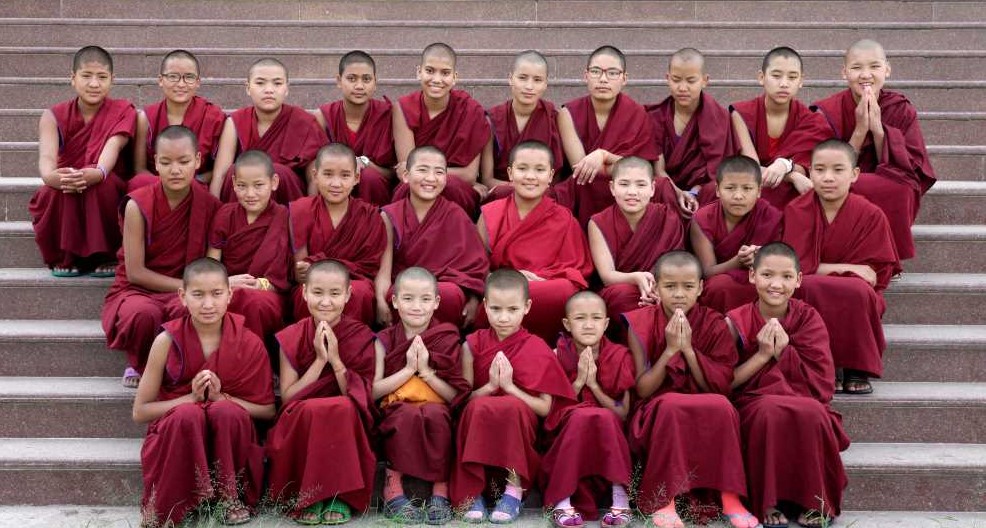 |
The nuns o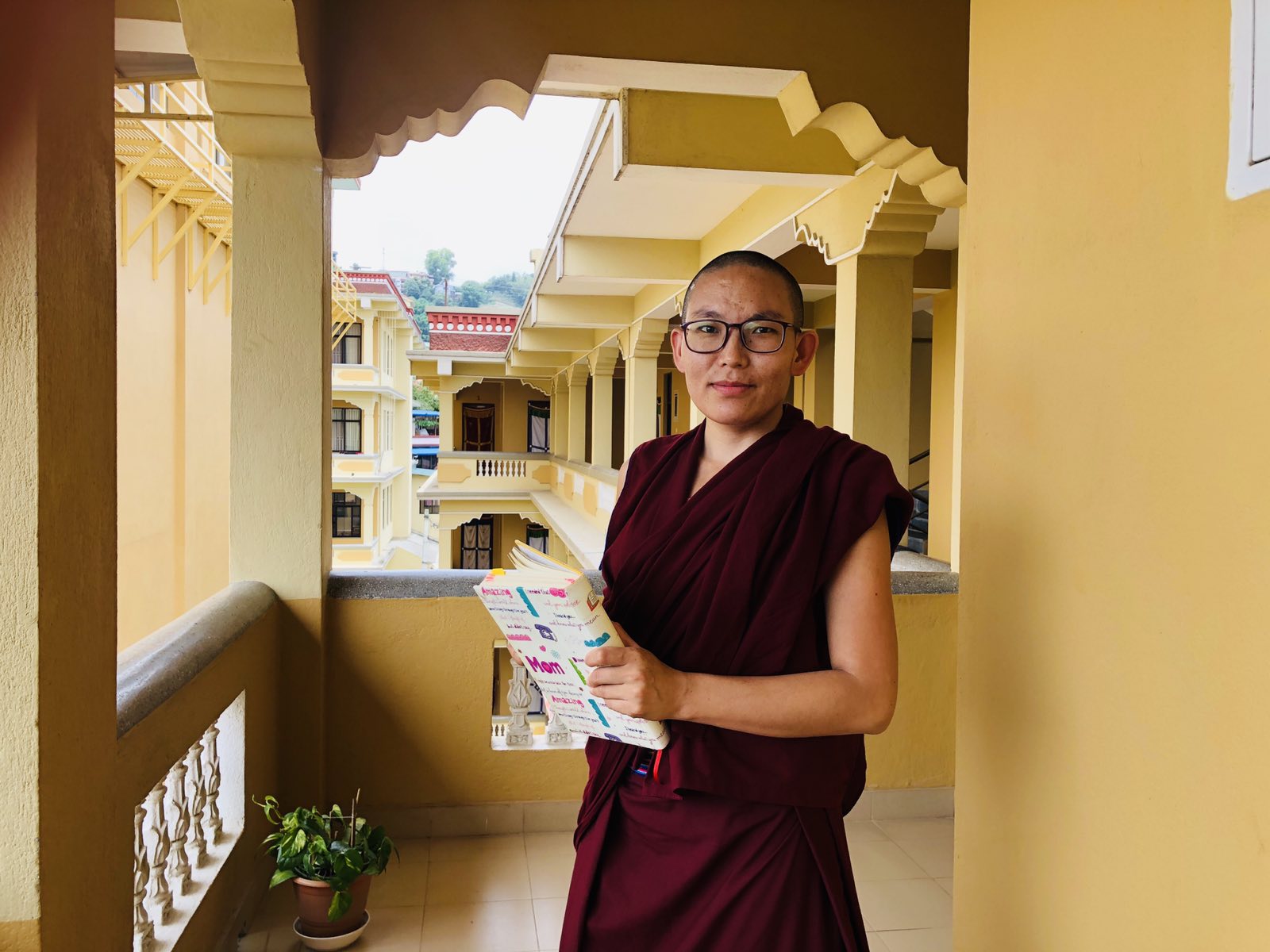 f Khachoe Ghakyil Nunnery have had the doors of the classical Buddhist education opened to them. They are provided with highly trained scholars to teach them, and are now instructed in classical Tibetan debate, the performance of ritual music, the creation of sand mandalas, and other ritual arts Khachoe Ghakyil has established a geshe study program (the geshe degree is the monastic equivalent of a Doctor of Divinity) with the prospect of obtaining a geshe degree - one of only few nunneries in India and Nepal to offer such an opportunity for nuns. Providing this kind of Dharma education also plays an important role in the preservation of the Dharma outside Tibet, where the teachings of the Buddha are under constant threat. They engage in regular retreats, such as the annual Nyung Ne retreat, held during the month of Shakyamuni Buddha’s Enlightenment (Saka Dawa).
f Khachoe Ghakyil Nunnery have had the doors of the classical Buddhist education opened to them. They are provided with highly trained scholars to teach them, and are now instructed in classical Tibetan debate, the performance of ritual music, the creation of sand mandalas, and other ritual arts Khachoe Ghakyil has established a geshe study program (the geshe degree is the monastic equivalent of a Doctor of Divinity) with the prospect of obtaining a geshe degree - one of only few nunneries in India and Nepal to offer such an opportunity for nuns. Providing this kind of Dharma education also plays an important role in the preservation of the Dharma outside Tibet, where the teachings of the Buddha are under constant threat. They engage in regular retreats, such as the annual Nyung Ne retreat, held during the month of Shakyamuni Buddha’s Enlightenment (Saka Dawa).
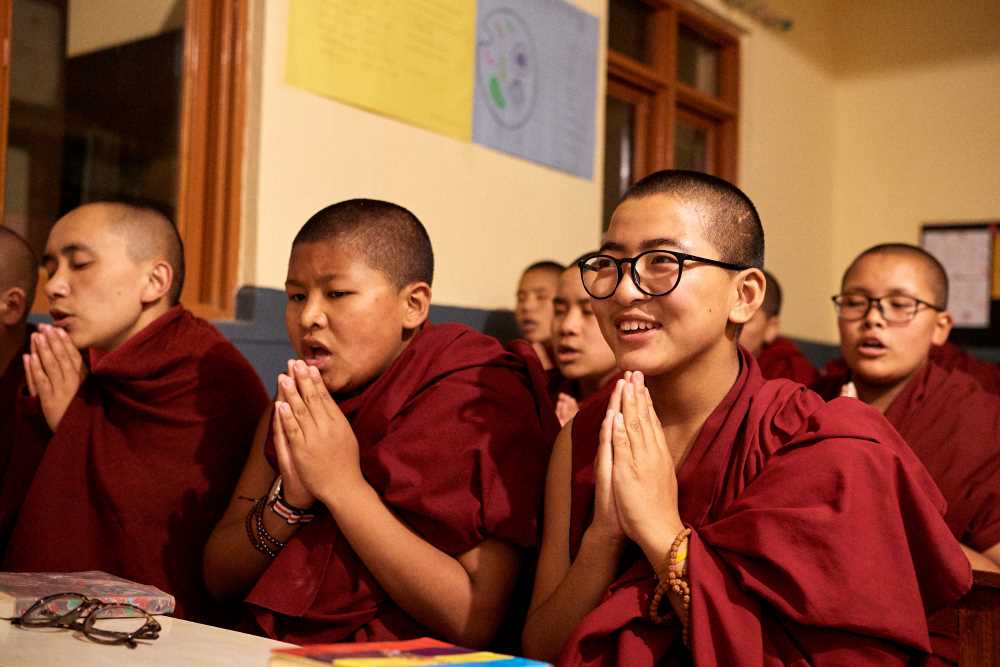 Three languages, Nepali, Tibetan and English, as well as standard school subjects are taught in the nunnery school. Additonall the nuns receive training in Buddhist rituals and chanting, and prayer ceremonies.
Three languages, Nepali, Tibetan and English, as well as standard school subjects are taught in the nunnery school. Additonall the nuns receive training in Buddhist rituals and chanting, and prayer ceremonies.
The nunnery provides full scholarships for all its members, which includes education, accommodation, health care and food.
Not all nuns are following the higher study program, some of them serving the community as teachers, administrators and managers while others work in the incense factory or kitchen.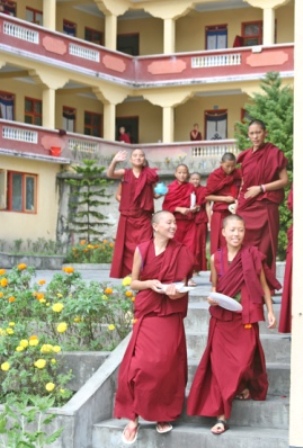
All facilities at the nunnery are offered completely free of charge. The nunnery supports itself through performing prayers for the local and international communities and there is a sponsorship program to cover the living expenses of the nuns.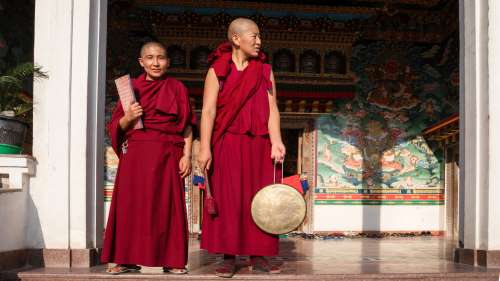
The nunnery supports itself through performing prayers for the lay community from donations of kind benefactors, and from the sale of handmade incense from the Pure Land Incense workshop. Occasionally a group of nuns is invited to perform Buddhist rituals, such as creating sand mandalas in other countrie; this also contributes to the nunnery.

